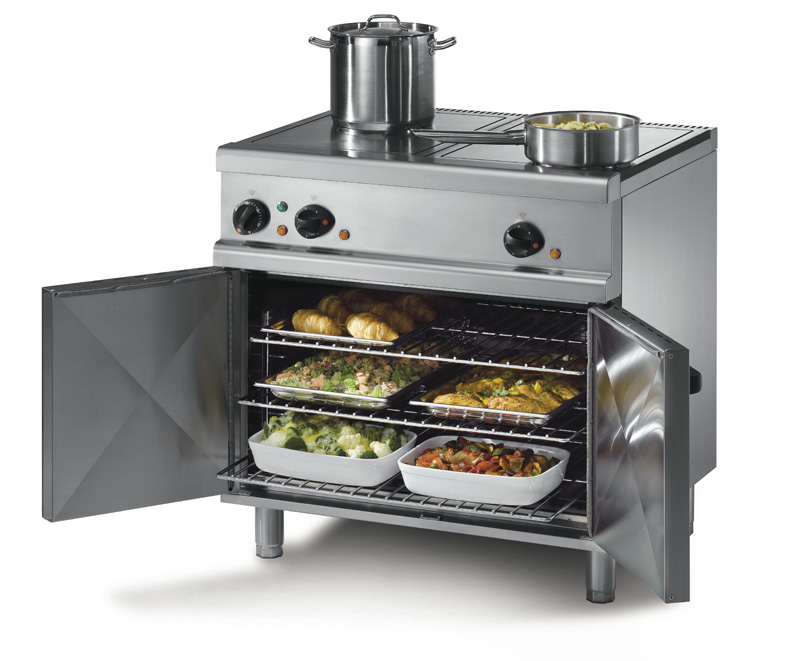
Maintaining your Commercial Units
One of the main expenses when entering the commercial catering field is finding the perfect equipment for your needs. Getting properly kitted out to your unique specifications can be time consuming and costly. Once you have established a working kitchen it is vital to maintain the efficiency of your equipment whether it be an oven, a refrigerator or a steamer. To prevent inconvenient breakdowns and pricey repairs, a solid servicing and maintenance program must be put into place.
Refrigerators
- Keep your condenser free of dust and dirt by regularly wiping. Any build-up of debris can hinder the efficiency of your unit and will result in the condenser over working and cause a burnout.
- Regularly inspect the drain located at the base of the refrigerator to check for any blockages. If the water is allowed to back-up, the internal area may become flooded causing potential health issues.
- Cover all foods stored inside the refrigerator especially highly acidic ingredients. Not only will this prevent cross contamination but also the high acid levels can contribute to any corrosion inside your unit.
- Regularly check all seals and gaskets as any flaws or defects in even the tiniest component will cause increased stress on your refrigerator.
- Give all seals, doors and internal and external surfaces a thorough clean on a weekly or bi-weekly basis. This will ensure that all your equipment remains in full working order and will extend the expected lifespan of your refrigerator.
Deep Fryers
- Always clean the element whenever the oil is changed or filtered, normally every 3-6 months. There will always be a build-up of grease and crumbs on the internal surfaces and element so whilst the fryer is empty, take the opportunity to scrub clean. This procedure is simple to do;
- Empty out the old, used oil and dispose of appropriately.
- Fill with water and a mild cleaning agent.
- Switch on the fryer and let the water simmer but not boil.
- Scrub the sides with a long handled brush, taking care not to splash ant hot water.
- Empty the water and rinse with clean, warm water before refilling with fresh, clean oil.
- Fryers obviously spit out oil residue when in use so ensure that all external surfaces are wiped daily at the end of shift. This should only be carried out once the oil has been given sufficient time to cool.
- Wash and dry fryer baskets daily to guarantee the cleanliness of the machine and the taste of your food. Be sure to only replace the baskets once they are completely dry as hot oil and water do not mix well.
- Only ever heat the fryer oil to the recommended temperature. Raising the temperature in the hope of reducing the cooking time has a negative effect on the food as well as the machine. The food has an odd taste and the equipment can become damaged as the oil burns from overheating.
Steamer
- Clean the interior of the steamer daily and sanitise accordingly. Food comes into direct contact with these surfaces and therefore any bacteria can contaminate the foods placed inside the steamer.
- Regularly change the filters as if neglected the taste of the food can become affected.
- Perform regular checks and look for leaks of any kind. If leaks are present the efficiency and energy use of your steamer is compromised and the overall health of the machine is jeopardised as it is subjected to having to work harder. Also check all seals to ensure that no steam is escaping. If a seal is faulty it implies that the steamer is not working as efficiently as it should.
- Always drain any residual water manually if required. Any water left in the steamer will become stagnant and will make your food taste different; there is also a potential health hazard from steaming and then re-steaming the same water over again. When a drainer is integral it is important to check the temperature of the water being drained. If the temperature of the drained water is too high it would imply that the cooling system is faulty.
Ovens
- Clean the interior surfaces daily. A deeper clean including rims and seals should be carried out once a month. An oven with a self-cleaning option can be a little pricier but will ensure cleanliness and will reduce the amount of elbow grease needed to make the oven sparkling. The exterior should be cleaned with a mild soap and a soft sponge or cloth on a weekly basis.
- Check seals regularly. Any failing seals will result in heat escaping from the oven compartment. This will increase your utility bills, decrease the performance of your equipment and make your oven work harder than necessary, putting undue stress on important components.
- Monitor your oven temperature readings. If your oven is not heating correctly you will not be gaining the maximum advantages from your unit.
By educating staff members regarding the correct maintenance procedures for your commercial catering equipment you can save yourself the price of costly repairs and guarantee you are receiving the maximum efficiency and quality from your kitchen appliances.

Leave a Comment
Your email address will not be published. Required fields are marked *